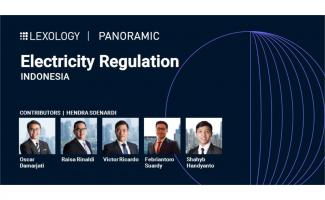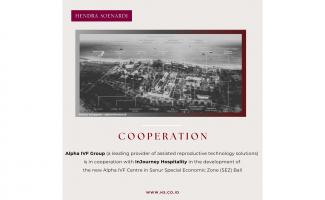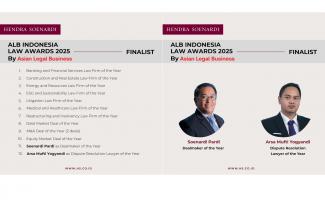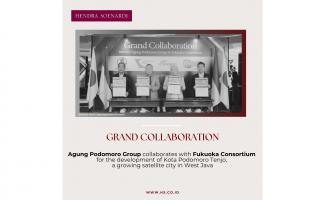News & Publications
OTORITAS JASA KEUANGAN REGULATION NO. 17/POJK.04/2020: KEY CHANGES ON MATERIAL TRANSACTION AND CHANGE OF BUSINESS ACTIVITY RULE
View file in pdf version
Written by:
Oscar Damarjati | Raisa Rishya Renald Rinaldi | Ainun Ringe Angelina | Kimberly Chrestella
Introduction
The Indonesian Financial Services Authority/Otoritas Jasa Keuangan (“OJK”) has issued a new regulation on Material Transactions and Change of Business Activity, namely OJK Regulation No. 17/POJK.04/2020 on 21 April 2020 (“OJK Reg No. 17”). However, on such date, only some of provisions have come into effect i.e. (i) the exemptions for material transactions conducted by public companies in the financial services sector subject to conditions determined by OJK and (ii) the administrative sanctions.
Other provisions under this OJK Reg No. 17 were in force on 21 October 2020, including effectively revokes the Decree of the Head of Capital Markets and Financial Institutions Supervisory Agency No. Kep-614/BL/2011 of 2011 on Material Transaction and Change of Business Activity ("Rule No. IX.E.2").
Key Changes
In general, there are five (5) key changes with regard to Material Transactions and Change of Business Activity in OJK Reg No. 17, as follows:
A. Definition of a Material Transaction
OJK Reg No. 17 regulates transaction(s) conducted by public companies or controlled companies that meet certain thresholds as a material transaction. Furthermore, similar to Rule IX.E.2, OJK Reg No. 17 sets out the types of transactions which may be categorized as material transactions, among other things are as follows:
- participation in business entities, projects, and/or certain business activities;
- purchase, sale, transfer, use, exchange of assets or operating segments;
- acquisition, release and/or use of services;
- asset leasing;
- funds lending and borrowing, including a transfer thereof;
- collateralizing assets of a public company and/or controlled company for securing loans from other parties; and
- providing corporate guarantees.
B. Threshold of a Material Transaction
As a general principle, any transaction valued at 20% or more of a public company’s equity will be deemed as a material transaction. Such general threshold is calculated based on audited annual financial statements, quarterly financial statements (limited review or audited) or other audited interim financial statements, whichever is the most recent one.
In addition to the general threshold, OJK Reg No. 17 now sets specific thresholds for the following transactions/conditions:
- Acquisition and disposal of companies or operating segments to be categorized as a material transaction if:
- the transaction value is equal to 20% or more of the public company’s equity;
- the total assets that become the transaction object divided by the total assets of the public company with a value of equal to or more than 20%;
- the net profit of the transaction object divided by the net profit of the public company with a value of equal to or more than 20%; or
- the revenue of the transaction object divided by the revenue of the public company with a value of equal to or more than 20%.
- Public companies with negative equity will be deemed to conduct a material transaction if the transaction represents at least 10% of the said company’s total assets.
- For the dilution of a public company’s ownership in a controlled company resulting in the controlled company’s financial statements no longer being consolidated to such public company, the dilution is considered to satisfy the materiality threshold if the calculation of:
- the total assets of the controlled company, divided by the total consolidated assets;
- the net profit of the controlled company, divided by the consolidated net profit; or
- the revenue of the controlled company, divided by the consolidated revenue;
with a value of equal to or more than 20%.
Such calculation must be based on the audited financial statements within 12 months before (i) the date of dilution, if the calculation is less than 50%, or (ii) the date of the general meeting of shareholders ("GMS"), if the calculation is more than 50%.
C. Procedure
In general, for a material transaction, OJK Reg No. 17 still requires the public company to appoint an independent appraiser to assess the transaction, to conduct material transaction disclosure and/or to obtain shareholders’ approval (as relevant) in connection with the implementation of material transactions as previously stipulated in Rule IX.E.2. In addition, OJK Reg No. 17 also provides new additional requirements as follows:
1. Requirement to obtain Independent Shareholders’ Approval
OJK now requires independent shareholder approval to be obtained for an expanded scope of transactions covering any transaction that could “potentially disrupt” the business continuity of the public company (or its controlled subsidiary, as applicable). In its elucidation, OJK Reg No. 17 tries to clarify the types of transaction that could “potentially disrupt business continuity” by providing the following examples:
- if a transaction can cause reduction of revenue on a pro forma basis amounting to 80% or more; or
- if a transaction can cause a public company to experience a pro forma net loss.
2. Requirement to obtain GMS
Different from Rule IX.E.2, where a GMS is only required if the material transaction exceeds 50% of the equity of the public company, OJK Reg No. 17 further adds a requirement of a Shareholders’ Approval if the value of the acquisition or disposal of any business division conducted by a public company with negative equity is more than 25% of its total assets or the appraisal report declares that such material transaction is unfair.
3. Requirements to disclose the implementation of Material Transaction in the Annual Report
Similar to Rule IX.E.2, OJK Reg No. 17 also requires public companies to conduct material transaction public disclosure. As an additional requirement, OJK Reg No. 17 further requires the public company to disclose the result of the material transaction in its upcoming annual report. OJK Reg No. 17 also obliges a public company who fails to carry out the material transaction, that has been approved by a GMS within 12 months, to disclose such event in its annual report and provide such particular explanation of the non-implementation at the next GMS.
4. Sale and purchase of onshore / offshore public company’s shares
With respect to sale and purchase of onshore / offshore public company’s shares which falls under the category of a material transaction, OJK Reg No. 17 sets out several provisions on how to determine the share price in such transactions. The minimum price for the sale and the maximum price for the purchase of the shares may vary. It is determined by certain conditions, as follows: (i) whether the shares are not being traded within >90 days or temporarily suspended by the stock exchange prior to the material transaction; and (ii) whether the material transaction results in the change of control over other public companies.
D. Exemptions
OJK Reg No. 17 provides a list of transactions exempted from the procedures for material transactions. These exemptions are set out below:
|
Exemptions from the obligations to: (i) engage an Appraiser and (ii) obtain GMS approval |
Notes: OJK Reg No. 17 removes the previous exemptions for certain types of material transactions under Rule IX.E.2, namely:
|
|
Exemption from the obligations to: (i) engage an Appraiser, (ii) conduct material transaction public disclosure, (iii) submit supporting documents to OJK and (iv) obtain GMS approval |
Core Business Activities OJK Reg No. 17 exempts public companies from several compliance requirements if the material transaction relates to its business activities. OJK Reg No. 17 defines “business activities” as business activities that are stated in the public company’s articles of association and that have been conducted by the company. To benefit from this exemption, the business activities must be conducted regularly, repeatedly or continuously and for the purpose of generating revenue. Public Financial Institution OJK Reg No. 17 exempts public companies in the financial services sector from several material transaction compliance requirements if they meet “certain conditions” as determined by OJK. However, there is no further explanation in OJK Reg No. 17 regarding such conditions. |
E. Obligations regarding Change of Business Activity
Similar to Rule No. IX.E.2, OJK Reg No. 17 also requires a GMS approval, certain information disclosure and a feasibility study for any change of business activities. However, the new regulation clarifies that the change of business activity that requires GMS, public disclosure and a feasibility study, will be triggered if a public company intends to:
- add a new business activity to the line of business currently contained in its articles of association;
- carry out a business activity that has been stated in its articles of association but has never been carried out;
- reduce the business activities currently carried out by the public company; or
- replace all of its current business activities that have been carried out with the new business activities.
Conclusion & Remarks
OJK has set out a stricter regulation concerning material transactions and change of business activity under the new rules. The first major change is the additional threshold of materiality for specified conditions and the newly introduced requirements to obtain independent shareholders’ approval, which were absent under the previous regulation. The second major change is the removal of several exempted transactions. This may affect the practices conducted by the public companies and require further examination and/or assessment by the public company prior to conducting any material transaction and/or change of business activity.
Copyright © 2020 HS. All rights reserved.
Disclaimer:
The foregoing material is the property of Hendra Soenardi and may not be used or relied upon by any other party without our prior written consent. The information herein is of general nature and should not be treated as legal advice, nor shall it be relied upon by any party for any circumstance. Specific legal advice should be sought by interested parties to address their particular circumstances.



